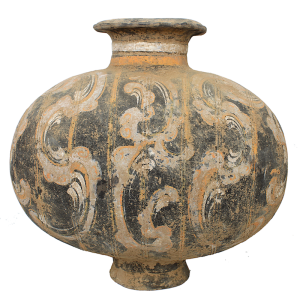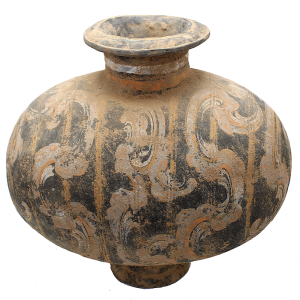Han Dynasty Cocoon Jar with Cloud Designs, China (16015UHEM) $2100
$2,100.00H: 11.75” W: 12.25” D: 7.5” | FOR SHIPPING INFORMATION CONTACT US AT 213-568-3030
Cocoon jars were mingqi made for placement in tombs to comfort the deceased on their journey to and in their afterlife. An elixir of Immortality made from mulberry leaves or their ashes was placed inside for the deceased to drink and transmigrate into the world of the beyond. Ovoid in shape to resemble a silkworm cocoon, ajar rests on a small trumpet-shaped foot and has a narrow neck and a wide lip at its mouth. Painted after firing with vertical bands dividing it into panels, swirling cloud scrolls, and circular “eye” motifs at each end, this beautiful vessel is in excellent condition for its age with expected paint losses, scrapes, and dirt adhesions.

